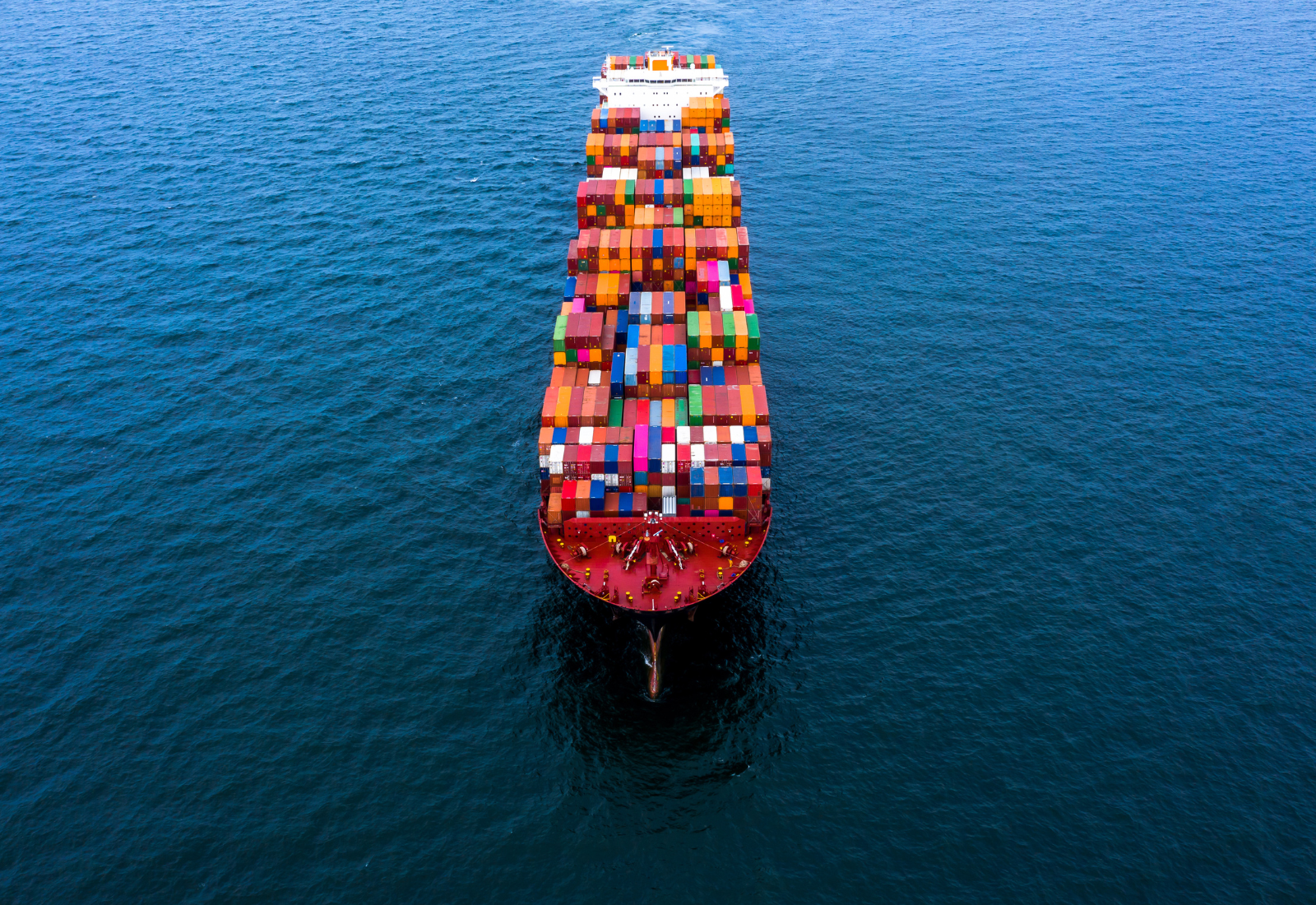In an interconnected world, the movement of goods across borders is facilitated by containerization. This logistical innovation has transformed global trade, enabling the efficient and secure transportation of goods on a scale never before imagined. In this post from Storage On-Site, we’ll examine the multifaceted impact of containerization on global trade, tracing its evolution, examining its advantages, exploring its challenges, and envisioning its future.
What is Containerization?
Containerization refers to the process of packing goods into standardized containers for transportation and storage. These containers come in various sizes and are typically made of steel to withstand the rigors of long-distance travel. The standardization of containers has revolutionized the logistics industry. It has enabled intermodal transportation, where goods can be easily transferred between ships, trucks, and trains without the need for manual handling or repackaging.
Significance of Containerization in Modern Global Trade
Between 1980 and 2022, the deadweight tonnage of container ships increased from 11 million to 293 million metric tons. Between 2020 and 2028, the global container shipping market is expected to grow at a compound annual growth rate (CAGR) of 12%. The significance of containerization in modern global trade cannot be overstated. It has dramatically reduced shipping costs, shortened transit times, and facilitated the globalization of supply chains. By standardizing the way goods are packed and transported, containerization has streamlined logistics operations, leading to increased efficiency and profitability for businesses engaged in international trade.
The Evolution of Containerization
The concept of containerization has its roots in the early 20th century. However, it wasn’t until the 1950s and 1960s that it began to gain widespread adoption. Key milestones in the development of containerization include:
- Introduction of standardized container size
- Establishment of container terminals at major ports
- Implementation of container shipping networks connecting continents
Advantages of Containerization
Containerization offers numerous advantages for businesses engaged in global trade, such as:
- Streamlining logistics and transportation by reducing the time and effort required to load and unload cargo.
- Increasing efficiency and lowering labor costs by automating many aspects of the shipping process.
- Enhancing security and reducing cargo damage by protecting goods from theft, vandalism, and environmental hazards.
- Standardizing packing methods and container sizes, facilitating easier handling and transfer between different modes of transportation.
- Allowing for easier tracking and monitoring of shipments, leading to better inventory management and risk mitigation.
- Promoting intermodal transportation, which reduces dependency on any single mode of transport and increases flexibility in routing and scheduling.
Global Trade Expansion
Containerization has played a pivotal role in expanding global trade by opening up new markets and trade routes. It has accelerated the process of globalization by enabling companies to source materials and sell products from virtually anywhere in the world. Additionally, containerization has facilitated the growth of e-commerce by making it easier for businesses to ship goods directly to consumers across borders.
Challenges and Considerations
While containerization has brought about significant benefits, it also poses challenges and considerations that need to be addressed, such as:
- Infrastructure requirements and port congestion: The increasing volume of containerized cargo has placed strain on existing infrastructure. This has led to congestion at ports, necessitating investments in upgrading and expanding facilities to accommodate growing demand.
- Environmental impact: Containerization has environmental implications. These include carbon emissions from transportation and the disposal of non-biodegradable containers.
- Labor implications: The adoption of automation and robotics in container handling operations has the potential to disrupt traditional employment in the logistics industry.
Containerization’s Role in Supply Chain Management
Containerization plays a crucial role in supply chain management by enabling just-in-time inventory practices and supply chain optimization. By standardizing the transportation process, containerization reduces the need for excess inventory and minimizes the risk of stockouts. Furthermore, containerization enhances supply chain resilience by providing a more reliable and secure means of transporting goods in the face of disruptions such as natural disasters or geopolitical conflicts.
Technological Advancements
Technological advancements have significantly bolstered the capabilities of containerization in recent years. Key advancements include:
- IoT (Internet of Things) and Tracking Solutions: These groundbreaking technologies enable real-time monitoring of containerized cargo, providing companies with invaluable insights into the location and condition of their shipments throughout the entire supply chain.
- Automation and Robotics: The integration of automation and robotics has revolutionized container handling operations, heralding a paradigm shift in the way goods are loaded, unloaded, and transported. Automated systems streamline processes, significantly reducing turnaround times, minimizing errors, and enhancing safety standards.
- Digitalization of Shipping Documents: The digitalization of shipping documents is as a game-changer. It has streamlined administrative processes and reduced paperwork. By transitioning from traditional paper-based documentation to digital platforms, such as electronic bills of lading and digital customs declarations, businesses can enhance data accuracy and accelerate clearance procedures at ports of entry.
Impact on Emerging Markets
Containerization has been a catalyst for economic development in emerging markets. It offers a gateway for developing economies to actively engage in global trade on a level playing field. Previously inaccessible markets have become reachable, allowing businesses in emerging economies to export their goods to international markets. This newfound access to global supply chains has facilitated the expansion of export-oriented industries. It has also attracted foreign investment, driving economic growth and job creation in these regions.
Furthermore, containerization has fostered greater integration into the global economy, enabling emerging markets to diversify their trade partners and reduce dependency on traditional markets. This mitigates the risks associated with economic fluctuations and geopolitical tensions.
Future Trends in Containerization
Looking ahead, several trends are shaping the future of containerization.
- Integration of Artificial Intelligence (AI): AI-powered systems are anticipated to play a significant role in optimizing container logistics. From predictive maintenance of container fleets to dynamic route planning based on real-time data analytics, AI has the potential to revolutionize decision-making processes and enhance operational efficiency.
- Expansion of Intermodal Connectivity: The integration of different modes of transportation, such as rail, road, and air, into intermodal networks is projected to further enhance containerized cargo transportation. This expansion of intermodal connectivity will enable faster transit times, lower costs, and increased reliability.
- Emergence of Smart Ports: Smart port infrastructure, equipped with advanced technologies such as IoT sensors, robotics, and data analytics, is set to accelerate port operations. They will enable real-time monitoring and optimization of cargo handling processes. This will reduce congestion, minimize delays, and improve port productivity.
In Conclusion
Containerization has had a transformative impact on global trade. It has revolutionized the way goods are transported and distributed across the world. Its advantages are clear: streamlined logistics, increased efficiency, and expanded trade opportunities. However, challenges remain, including infrastructure constraints, environmental concerns, and labor implications. Nevertheless, with continued innovation and investment, containerization will continue to play a central role in shaping the future of global commerce.
Contact Storage On-Site for the Best Indianapolis Storage Containers
For businesses in need of Indianapolis storage solutions, Storage On-Site offers a range of high-quality storage containers to meet all needs. Whether you’re looking for temporary storage during a relocation or long-term storage for excess inventory, we have you covered. Contact us today to learn more about our services and how we can help you optimize your storage and logistics operations.

